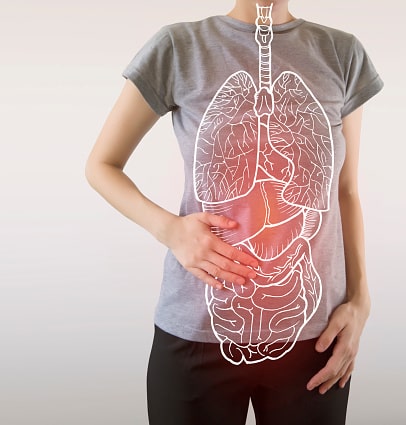Internal Organ Damage in Car Accidents: Symptoms and Treatment
Whether you've been injured in an accident, are dealing with a personal injury claim, or facing another legal issue, Mendez & Sanchez APC is here to fight for you. We handle a wide range of cases and focus on one thing—getting results. Our goal is to win the maximum compensation you deserve and help you get the justice you're owed in California or Nevada. Contact us today for a free, no-obligation consultation.
Call Us Now
Car accidents are a common occurrence on the roads, with millions of people being involved in accidents every year. While most car accidents may result in minor injuries, some can be severe and cause internal organ damage. The impact of a car accident can cause organs to be bruised, damaged, or ruptured, which can result in serious medical conditions that require immediate treatment.
In this article, we will explore the different types of internal organ damage that can result from car accidents, the symptoms, and the treatment options available.
Types of Internal Organ Damage:
- Brain Damage: Brain damage can occur in a car accident when the head is subjected to a severe impact. The brain can be bruised, or there may be bleeding within the skull. Symptoms of brain damage can include headaches, dizziness, confusion, and loss of consciousness. In severe cases, brain damage can result in permanent disabilities or even death.
- Spinal Cord Injuries: A spinal cord injury can occur when the spinal cord is compressed or severed in a car accident. This type of injury can cause paralysis, loss of sensation, and other neurological problems. The severity of the injury depends on the location and extent of the damage to the spinal cord.
- Chest Injuries: Chest injuries can result from the impact of a car accident. The chest can be bruised, or there may be broken ribs or a collapsed lung. Symptoms of chest injuries can include chest pain, difficulty breathing, and coughing up blood.
- Abdominal Injuries: Abdominal injuries can result from the impact of a car accident. The organs in the abdomen, such as the liver, spleen, and kidneys, can be bruised or ruptured. Symptoms of abdominal injuries can include pain, swelling, and tenderness in the abdomen.
- Pelvic Injuries: Pelvic injuries can result from the impact of a car accident. The pelvis can be fractured, which can cause severe pain and difficulty moving. Pelvic injuries can also cause damage to the bladder, urethra, and reproductive organs.

Symptoms of Internal Organ Damage:
Symptoms of internal organ damage may not be immediately apparent after a car accident. It can take several hours or even days for symptoms to develop. Some of the common symptoms of internal organ damage include:
- Pain in the affected area
- Swelling and tenderness
- Difficulty breathing
- Dizziness and confusion
- Loss of consciousness
- Nausea and vomiting
- Abdominal pain and swelling

If you experience any of these symptoms after a car accident, it is essential to seek medical attention immediately.
Treatment Options:
The treatment for internal organ damage will depend on the type and severity of the injury. In most cases, surgery may be required to repair or remove damaged organs. Other treatment options may include:
- Medications: Medications may be prescribed to manage pain and inflammation caused by internal organ damage. Antibiotics may also be prescribed to prevent infections.
- Oxygen Therapy: Oxygen therapy may be used to increase the amount of oxygen in the blood and reduce the risk of complications.
- Rehabilitation: Rehabilitation may be necessary for individuals who have suffered from internal organ damage. This can include physical therapy, occupational therapy, and speech therapy.
- Counseling: Counseling may be recommended for individuals who have suffered from internal organ damage. This can help them cope with the physical and emotional effects of the injury.
Prevention:
Prevention is the best way to avoid internal organ damage from car accidents. Here are some tips to reduce the risk of internal organ damage:
Car accidents can result in serious injuries, including internal organ damage, which can have long-term consequences. Preventing internal organ damage is essential to ensure the safety and well-being of individuals involved in car accidents. Here are some tips to prevent internal organ damage from car accidents:
- Wear a Seatbelt: Wearing a seatbelt is one of the simplest and most effective ways to prevent internal organ damage in a car accident. Seatbelts help to distribute the force of impact across the body, reducing the risk of severe injuries.
- Drive Responsibly: Driving responsibly and following traffic laws can significantly reduce the risk of car accidents. Avoiding reckless behaviors such as speeding, tailgating, and distracted driving can help prevent internal organ damage in the event of a crash.
- Install Airbags: Airbags are designed to cushion the impact of a car accident, reducing the risk of severe injuries, including internal organ damage. Installing airbags in your car can significantly improve your safety in the event of a crash.
- Choose a Safe Car: Choosing a safe car with a high safety rating can significantly reduce the risk of internal organ damage in a car accident. Vehicles with advanced safety features such as anti-lock brakes, electronic stability control, and blind-spot monitoring can help prevent accidents and reduce the severity of injuries.
- Seek Medical Attention: If you are involved in a car accident, it is essential to seek medical attention immediately, even if you do not feel injured. Some injuries, including internal organ damage, may not be immediately apparent and can have serious consequences if left untreated.
In conclusion, preventing internal organ damage from car accidents is crucial to ensure the safety and well-being of individuals on the road. By following these tips and taking the necessary precautions, you can significantly reduce the risk of internal organ damage in the event of a car accident.



